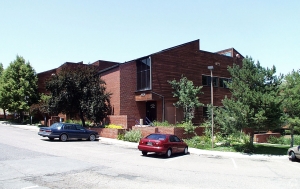Displaying items by tag: 1031 exchange requirements
5 Reasons to 1031 Exchange According to Two 1031 Exchange Brokers
Ben Franklin once said, “In this world, nothing can be said to be certain, except death and taxes.” Well, fast forward to the present day, and one part of his quote remains to be true: death. But for individuals who invest in real estate, there is a way to defer capital gains taxes after all. That way is through a 1031 exchange. And whether you’re a new or experienced investor, you can greatly benefit from this real estate transaction. Today we’ll be discussing the top five reasons to pursue a 1031 exchange according to two 1031 exchange brokers.
The American Dream Becomes Reality With the Help of 1031 Exchange Experts
A young RN and former schoolteacher decided to leave the big city and stake their claim in Chico, CA. This couple’s dream was to create a best-in-class senior/assisted-living facility to provide a tremendous quality-of-life for those in their final years. Bootstrapping was the only way forward for the Kupermans but they had a vision and were undeterred. Over 2 decades later, the business and real estate holdings had grown from a 6-bed (in 1 small rental home) facility to a large operation spanning 5 commercial assisted-living facilities. When the Kupermans decided to slow down & begin enjoying the fruits of their labors, their entire operation was put on the market for sale. The blue skies of 2019 soon turned dark & ominous in 2020 when the impact of covid-19 threatened what they had built. Fortunately, patience and persistence won; the clouds parted, and the assisted-living facilities were sold.
5 Tips for a Successful 1031 Exchange From a 1031 Exchange Expert
1031 exchanges can be complex. But when carried out correctly, they offer many benefits for investors. Obviously, the biggest benefit of carrying out a 1031 exchange (as opposed to simply selling a property and buying another one) is the tax payment deferral. But the benefits don’t stop there. 1031 exchanges can help you diversify assets, consolidate multiple properties into one for estate planning purposes, and reset property depreciation. Because of the complex nature of this type of real estate transaction, it’s best to seek the support of a 1031 exchange expert.
What is a 1031 exchange?
Before we dive in, let’s make sure there’s no ambiguity surrounding your understanding of 1031 exchanges. A 1031 exchange is named after Section 1031 of the U.S. International Revenue Code. Simply put, this real estate transaction allows investors to defer paying capital gains tax when they sell an investment property and then acquire a “replacement” investment property.
5 tips from a 1031 exchange expert
We said it once and we’ll say it again: 1031 exchanges can be complex. Here are some tips and tricks to help ensure a smooth and successful exchange.
1. Sign the exchange documents before you close
1031 exchange rules allow you to sell your “relinquished” property, then acquire your “replacement” property at a later date. If you sign your exchange documents (through your Q.I. - see #4 below) and follow the regulations, you turn what would be a sale, followed by a purchase, into an exchange. To do that, you need to sign the required exchange documents either on or before the closing date of your relinquished property. You’ll also need to sign a document outlining an assignment of your rights under the contract and give the seller notice of the assignment.
2. Know the IRS-mandated deadlines and stay up-to-date on rule changes
1031 exchanges require you to move relatively quickly. Remember that as soon as you sell your investment property, you only have 45 days to identify a replacement property and 180 days from the original sell date to close on the replacement property.
And if Tax Day is on the horizon, it might throw a wrench in your timing. If Tax Day occurs during your 180-day period, you must close by the tax deadline (including extensions) for the year of the original sale. If these deadlines aren’t met, you will no longer qualify for capital gains tax deferment.
It’s also important to ensure you stay up-to-date on tax code changes (like those that occurred in 2018) as they can greatly impact the rules and regulations surrounding 1031 exchanges. The 1031 exchange is currently under threat of elimination by the Democrat presidential nominee and liberal politicians.
3. What is the marketability of your replacement property?
It can be challenging to think ahead when you’re already under tight deadlines to close on a new property. But, you should always be thinking two steps ahead.
It’s imperative that you consider the current & future marketability of your replacement property. You don’t want to end up in a position where you buy an investment property that is not marketable to prospective tenant(s) as well as real estate investors in the future. Though it is often unwise, some investors make the decision to invest in a replacement property simply to avoid paying the capital gains tax.
4. Work with experts who support you throughout the entire process
There are a lot of moving parts involved in a 1031 exchange. To ensure a smooth transaction, you’ll want to surround yourself with a team of experts who can provide guidance throughout every step of the exchange.
After engaging your commercial real estate broker, the next person you should seek out is a Qualified Intermediary (aka Q.I.). They will hold the sale proceeds and assist you with the paperwork needed to ensure a successful transaction. The IRS requires the use of a qualified intermediary to complete a 1031 exchange.
In addition, an attorney with significant experience with commercial real estate purchase & sale contracts is critical. You’ll also want a commercial real estate inspector to provide a Property Condition Assessment (PCA) as part of your Due Diligence. If you intend to place debt on the replacement property, a commercial banker/lender with expertise in funding CRE investments is important.
5. Always have a backup plan
Unfortunately, sometimes real estate transactions fall apart for a variety of reasons. That said, it’s important to always have a backup plan to ensure you can still qualify for a 1031 exchange even if your first plan falls apart. Otherwise, you’ll be scrambling at the last minute to find a replacement property, which could lead to a less than ideal investment. It is recommended that investors take advantage of the 200% Rule or 3-Property Rule to ensure you’ve identified a viable alternative(s) investment.
Talk to a 1031 exchange expert today
If you’re ready to take the next step and seek the support of a 1031 exchange expert, reach out to our experts at Fountainhead Commercial.
We have 20+ years of experience executing on 1031 exchanges/commercial real estate transactions and we’d be happy to help you navigate the process.
Contact us today to get started.
1031 Exchange Helps Client Defer 100% of Capital Gains Taxes
A California-based investor reached out to Justin Rayburn, to help complete a 1031 Exchange so they could defer capital gains taxes on a commercial building sale.
The Situation
The client sold a commercial property in California and had 45-days to identify replacement properties in Colorado in order to complete a 1031 Exchange, which would prevent the client from having to pay significant capital gains tax on proceeds realized from the increase in property value.
The Challenges
Once properties were identified, they had to be closed within the following 135-days, which meant Rayburn had to move quickly. He recommended the client diversify their financial portfolio by purchasing two investment-grade office properties in Colorado that would qualify for the 1031 Exchange program and provide a continuous stream of retirement income for the client.
The Result
Rayburn identified over 25 qualifying properties within the first 20-days. They toured approximately 10 locations and selected 2 properties that met all of the 1031 and investment requirements within the required 45-day timeframe. The client closed two weeks in advance of the 135-day (180-days total) requirement imposed by the rules of the 1031 Exchange.
The Stat
Rayburn served as the buyer's representative during the successful 1031 Exchange of investment properties in Colorado. If you're looking for an experienced commercial real estate investment broker to help you navigate a 1031 Exchange transaction and defer 100 percent of your capital gains taxes, contact Fountainhead Commercial today.
Everything You Need To Know About 1031 Exchanges In 2019
Navigating the tax code is a lengthy and tedious process - especially if you are unfamiliar with the code itself and how to identify potential benefits. One key benefit that those with investment properties can leverage is that of the 1031 exchange transaction. A 1031 exchange is a transaction that allows you to sell a rental or investment property and defer all capital gains taxes that would come on a sale by essentially reinvesting your would-be profits into another investment property. A 1031 exchange is not the ideal solution for every real estate transaction, but when it is, this particular type of transaction can save investors hundreds of thousands (or even millions) of dollars in taxes.






